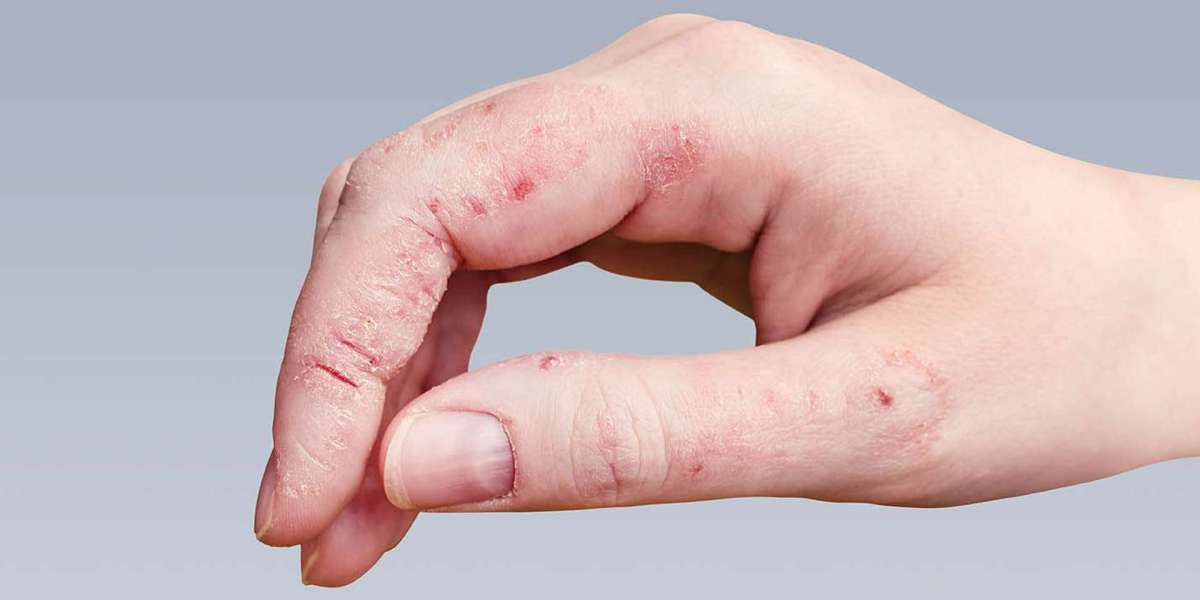Living in a climate as intense as the UAE can pose serious challenges to skin health, often resulting in persistent and recurring skin problems. Many residents report unexplained flare-ups of eczema, psoriasis, or acne despite regular skincare routines. This has led to growing awareness around skin diseases in Dubai(أمراض الجلد في دبي), where chronic conditions are not just caused by genetics or poor hygiene but are often the result of hidden triggers embedded in daily life. Understanding these triggers is key to effective prevention, control, and long-term skin wellness.
Understanding Chronic Skin Disorders:
Chronic skin disorders are conditions that either persist over a long period or occur repeatedly over time. Unlike temporary rashes or infections, these conditions often require ongoing management and can be influenced by numerous internal and external factors. Examples include eczema, psoriasis, rosacea, chronic urticaria, and persistent acne. Each has its own set of symptoms, but they share one trait: they are difficult to cure and often flare unexpectedly, leading sufferers to search for deeper root causes.
Environmental Triggers in Urban Climates:
Heat and Humidity:
The desert heat and high humidity levels common in Dubai can significantly affect the skin’s natural balance. Sweat mixed with pollutants clogs pores, encourages bacterial growth, and worsens inflammatory conditions like acne and eczema. For individuals with sensitive skin, even a short time in direct sunlight or a warm car can provoke a sudden flare-up.
Air Pollution:
Pollution from heavy traffic, construction dust, and industrial emissions contributes to oxidative stress on the skin. Fine particles settle on the surface, triggering inflammation, premature aging, and breakouts. People with chronic conditions may find that their skin becomes more reactive on days with poor air quality.
Air Conditioning:
While air conditioning offers comfort from the heat, it strips moisture from the air and from your skin. Prolonged exposure to indoor cooling systems can lead to dryness, itching, and flaking, particularly in people prone to eczema or psoriasis. Dry skin is more vulnerable to irritation and can act as a catalyst for flare-ups.
Internal Triggers Often Overlooked:
Diet and Nutrition:
Food choices play a crucial role in skin health, yet diet is often ignored when treating chronic skin conditions. High-glycemic foods, dairy products, and processed snacks can promote inflammation and hormonal imbalance, especially in acne-prone individuals. On the other hand, nutrient deficiencies—especially in zinc, omega-3s, and vitamin D—can weaken the skin’s protective barrier and immune response.
Hormonal Imbalances:
Hormones regulate oil production, skin cell turnover, and inflammation. When imbalances occur, particularly in women during menstruation, pregnancy, or menopause, skin may react with breakouts or sensitivity. Chronic hormonal fluctuations can trigger long-term conditions such as adult acne or melasma, often mistaken for temporary problems.
Stress and Mental Health:
There’s a strong connection between stress and skin. Emotional distress increases cortisol levels, which in turn inflames skin conditions. People living fast-paced lives in competitive urban settings are more likely to experience stress-induced breakouts, psoriasis flare-ups, or itching disorders like chronic urticaria.
Lifestyle-Related Triggers You Might Not Expect:
Skincare and Cosmetic Products:
Many individuals develop chronic reactions not from lack of skincare, but from using the wrong products. Harsh cleansers, alcohol-based toners, and heavily fragranced moisturizers can strip the skin’s natural oils, leading to irritation or allergic reactions. Even natural or organic products can cause issues if they contain essential oils or botanical extracts that the skin perceives as allergens.
Inconsistent Routines:
Using ten different products inconsistently, switching between brands, or trying every trending skincare hack can confuse your skin and damage its barrier. Chronic skin problems thrive in unstable conditions, and constantly changing your routine prevents your skin from adapting and healing.
Clothing and Fabric Choices:
Synthetic fabrics trap heat and moisture, creating an environment perfect for fungal growth or contact dermatitis. Tight clothing, especially during exercise or under the sun, can also cause friction and irritation. Cotton and breathable fabrics are recommended, particularly in warm climates.
Medical Conditions That Worsen Skin Disorders:
Autoimmune Diseases:
Autoimmune disorders like lupus and thyroid disease can present symptoms through the skin. Conditions such as alopecia areata, psoriasis, and vitiligo are linked to immune dysfunction and may appear as chronic skin disorders without an obvious cause.
Allergies:
Unrecognized food allergies or sensitivities, such as gluten intolerance, can express themselves through chronic skin symptoms. Inflammatory responses may cause eczema-like rashes, swelling, or even hives, particularly after meals or exposure to specific allergens.
Digestive Disorders:
The gut-skin connection is increasingly acknowledged in dermatology. Disorders like irritable bowel syndrome (IBS) or leaky gut syndrome may cause systemic inflammation that manifests on the skin. Chronic acne, rosacea, and eczema have all been associated with gut health imbalances.
Misdiagnosis and Self-Medication as Triggers:
Delayed Professional Diagnosis:
A significant number of chronic skin issues go undiagnosed or are misdiagnosed due to self-treatment. Over-the-counter steroid creams or antibiotics may offer temporary relief but can worsen the problem in the long run if used incorrectly. For example, long-term steroid use can lead to skin thinning, increased sensitivity, and a condition called steroid-induced rosacea.
Online Skincare Trends:
Social media is filled with DIY skincare tips and trending ingredients. However, what works for one person may harm another, especially when applied without medical guidance. Using acidic peels or abrasive scrubs without understanding your skin type can disrupt its barrier and trigger chronic issues.
How to Identify Your Specific Triggers:
Keep a Skin Journal:
Record daily activities, food intake, skincare products, and emotional states. This practice helps identify patterns and associations between triggers and flare-ups, allowing for more targeted adjustments in lifestyle.
Elimination Method:
Gradually remove products or foods from your routine and observe the results over a few weeks. This controlled approach can help isolate and identify what’s aggravating your condition.
Consult a Dermatologist:
Skin specialists can conduct patch testing, blood work, and medical evaluations to determine specific allergens or conditions. In cases of recurring or unexplained symptoms, professional insight is invaluable in crafting a sustainable treatment plan.
Preventative Tips to Manage Chronic Skin Conditions:
Hydrate and Moisturize:
Drinking water and applying hydrating products suited to your skin type are crucial. Look for ceramide-based creams, hyaluronic acid serums, and non-comedogenic moisturizers to help maintain barrier function.
Protect Against the Sun:
Even on cloudy days, UV rays affect the skin. A broad-spectrum sunscreen with SPF 30 or higher should be part of your daily routine. Reapplying every two hours when outdoors prevents pigmentation and reduces inflammation.
Maintain a Stable Skincare Routine:
Less is often more. A gentle cleanser, moisturizer, and sunscreen form a solid base for skin management. Treat chronic conditions with dermatologist-recommended treatments rather than experimenting with multiple new ingredients.
Manage Stress:
Mindfulness, regular sleep, and physical activity all contribute to hormonal and mental balance, indirectly improving chronic skin conditions. Stress reduction techniques like deep breathing or yoga are proven to reduce flare-ups.
Conclusion:
Chronic skin disorders are often misunderstood as purely genetic or environmental when, in reality, they are influenced by a wide range of hidden triggers. These include lifestyle choices, emotional health, environmental stressors, and even unseen internal imbalances. In a rapidly developing city with a demanding climate, it’s no wonder that skin diseases(أمراض الجلد) are commonly reported across all age groups. However, by learning to identify personal triggers, maintaining consistent routines, and seeking professional support, individuals can take control of their skin health and improve quality of life over time. Long-term management is not about finding a miracle cure—it’s about understanding your skin and treating it with care.



